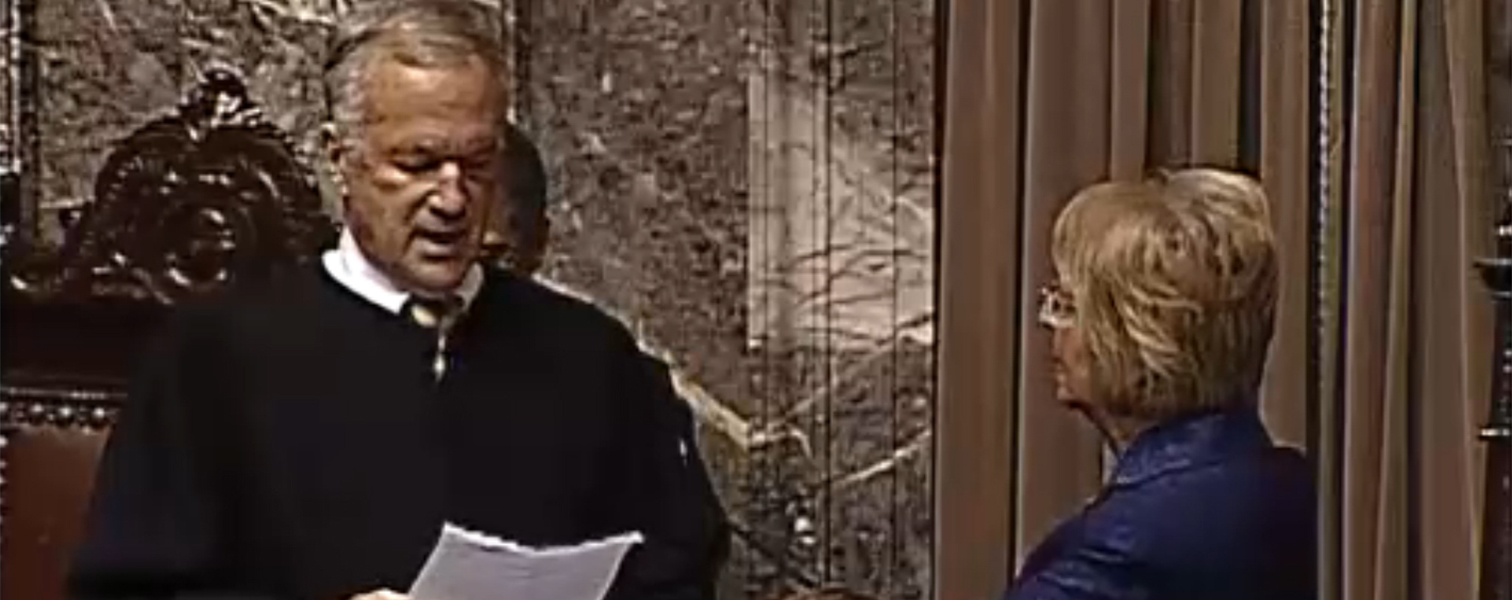- Supreme Court Justice James Johnson on Monday issued a searing rebuke to the court’s decree last week that the Washington State Legislature is still failing in its responsibility to fully fund K-12 education.
As a follow-up to its 2012 McCleary ruling, in which the court cited language in the Washington Constitution that education is the “paramount duty” of the Legislature and ordered lawmakers to develop a plan to commit up to $5 billion to schools by 2018, the court on Friday gave lawmakers an April 30 deadline to come up with a plan for increasing spending to its proscribed levels.
The ruling was passed by an 8-1 margin, with only Johnson dissenting, and he waited until Monday to issue his characteristically blunt assessment of his colleagues’ actions.
“This court’s expanding control of the Legislature’s funding of education continues to be a violation of the state’s constitution,” he wrote. “This court’s exercise of continuing jurisdiction in this case usurps what is intended to be — and what expressly is — a legislative function and duty.”
Johnson said the court had ignored the principle of checks and balances, and appropriated for itself the Legislature’s power over the budget, which the court is ill-equipped to wield.
“The Legislature — not any court — is the body capable of gathering relevant information regarding competing state budget interests and funding each according to available resources provided from the economy and tax (revenues),” he wrote. “The court is not constitutionally delegated to perform such information-gathering processes.”
Johnson noted the Legislature does its work in the open, with public hearings and intense media scrutiny. By contrast, court proceedings are, by law, conducted behind closed doors.
Moreover, Johnson said the court was a poor mechanism for correcting budgetary problems because it had the luxury of examining issues in a vacuum rather than considering the economy as a whole.
“The workings of a state involve many interconnected parts,” he wrote. “It is unhelpful to view one piece in isolation when other state matters have evolved.
“Washington’s economy is an ever-changing entity, with new issues (such as Boeing’s recently concluded union contract) transforming our economic calculus near daily,” Johnson continued. “The state of … schools has undoubtedly vastly changed since this case went to trial in August 2009. Several cycles of budgets and test scores have likewise come and gone.”
Even more pointedly, Johnson noted the court is in no position to enforce its edicts should the Legislature balk at the demands being placed on it.
“Even if we were to determine that the Legislature is in temporary violation of full funding,” he wrote, “the founders presciently left us without tool to punish such a short-term violation.”
Should the court find the Legislature and the governor in contempt for failing to pass a budget it approves of, Johnson wondered? If so, whom should it punish? Just those who voted against the court’s wishes or the body as a whole? And how can lawmakers be fined or imprisoned for simply sitting in the Legislature and voting their consciences?
“Even in light of the Legislature’s improved educational funding, we are unqualified to assess the progress made or the Legislature’s chances of achieving full funding by 2018,” Johnson wrote. “Put simply, the founders did not intend for this court to act in such a role and, more importantly, prohibited the exercise of such self-granted power.
“With zero information regarding other financial constraints and plans for future budgets, it is impossible to evaluate the Legislature’s progress,” he concluded. “We are not — and should not be acting as — managers of the state’s coffers.”












